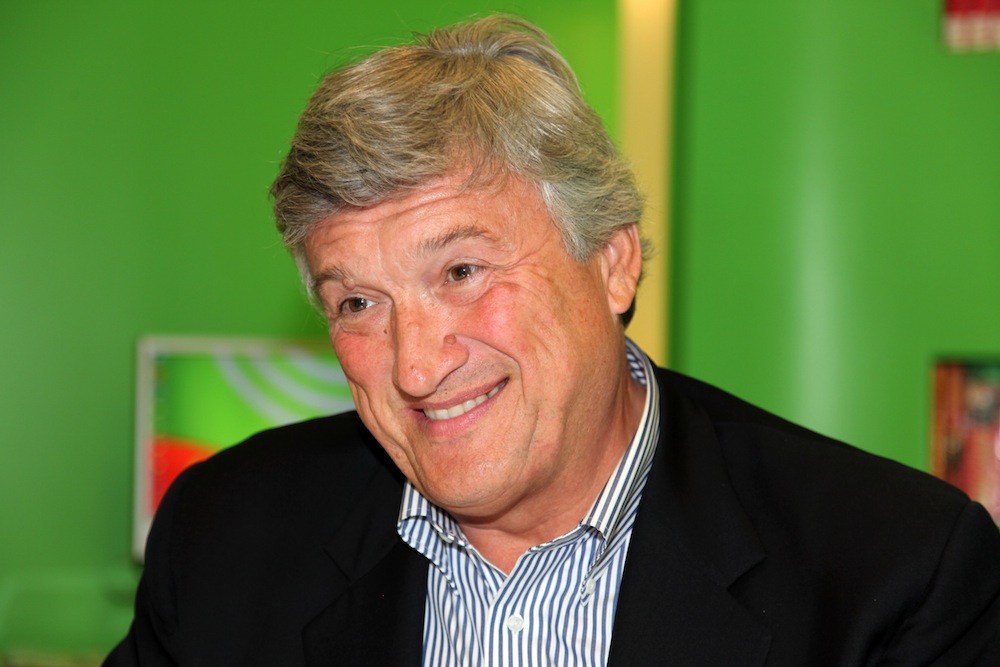
James Doty is a neurosurgeon and director of the Center for the Study of Compassion and Altruism Research and Education at Stanford University, which was founded with the support of the Dalai Lama. Before participating in a panel on altruism and health, he sat down in the Zócalo green room to talk about inspiration, compassion, and why he considers every day a holiday.
If you could be any animal, what would you be?
An owl because it’s wise. Or presumed to be wise, perhaps.
What would you choose as your theme song?
“We Are the World.”
What’s the last thing that inspired you?
One of my sons. We were out at dinner yesterday, and I had given him some money to go to the store next door—an ice cream store—and a homeless person came up to us and we chatted, and he spontaneously gave him the money I had given him for his dessert.
What’s the most surprising thing about meeting the Dalai Lama in person?
I think for a lot of people who meet the Dalai Lama and other sorts of religious leaders, even celebrities, is there’s some sense that they’re somehow different from you. And the reality is that we’re all somewhat the same, with the same aspirations in wanting those we care about to have opportunity and be happy. For the Dalai Lama that’s probably the world. For most of us it’s a smaller circle of people. But that message of thinking that one’s community is the world’s community is a powerful message that all of us could benefit from.
What’s your favorite holiday?
Every day is a holiday. I really have no favorite. In the business I’m in as a neurosurgeon, I see tragedy and devastation daily. It makes you appreciate the fact that every day is a gift, and none of us has the ability to have control of what happens.
How do you like your eggs?
Sunny side up.
What’s the last habit you tried to kick?
Chocolate.
Were you a compassionate kid?
Absolutely. I grew up in poverty; my father was an alcoholic and my mother was an invalid. But even as a child it struck me that you’d see people in capacity who wouldn’t intervene when they saw people suffering or in need, and paradoxically, individuals with nothing or very little would reach out.
How did you pass the time on the plane ride here?
Reading. My wife chides me about this, but I like Sherlock Holmes, and I’ve probably read all the Sherlock Holmes stories about a million times, but I still read them. I read a Sherlock Holmes story.
How do you react when you’re embarrassed?
By pretending I’m not. I think that when you’ve been embarrassed enough like I have, what you try to do is understand that it, and other things that demonstrate our humanity, our frailty, are part of our existence. You can’t get wrapped up too much in that. If you can go through your life and appreciate the ups and recognize the downs and try to learn something from them but try to have equanimity, it gives you a much more calm life. You recognize that neither extreme is something to get too wrapped up in.



